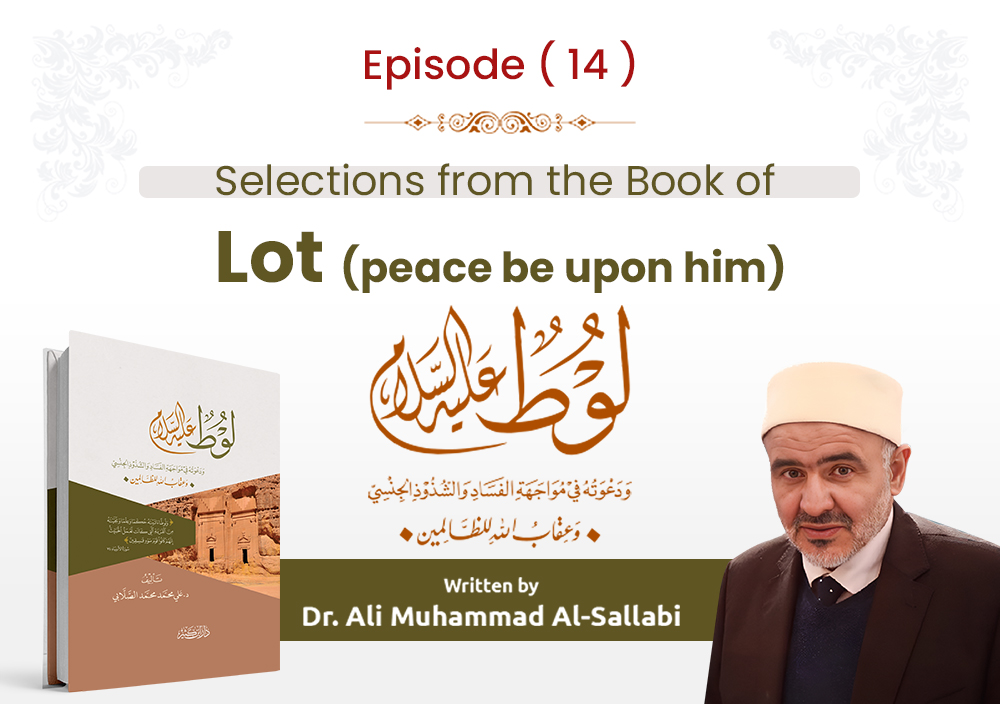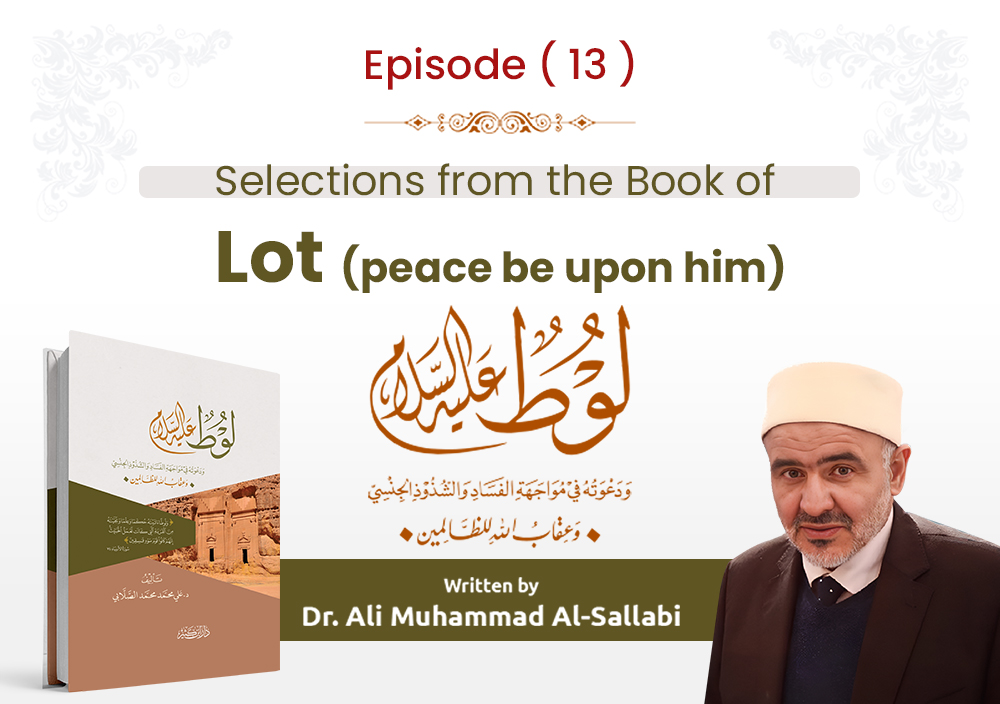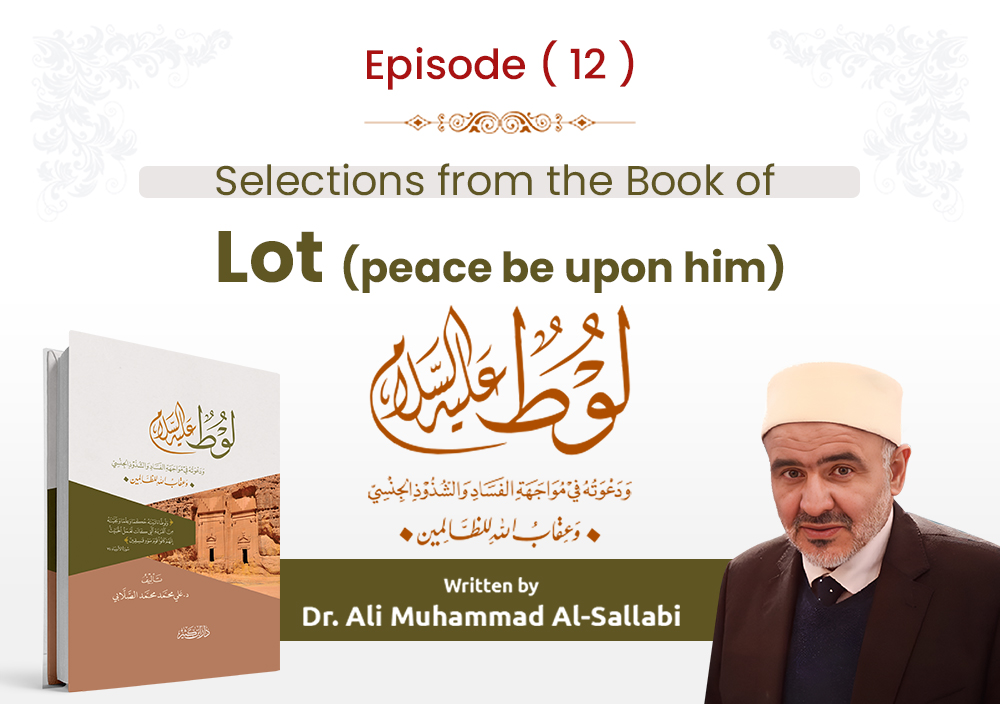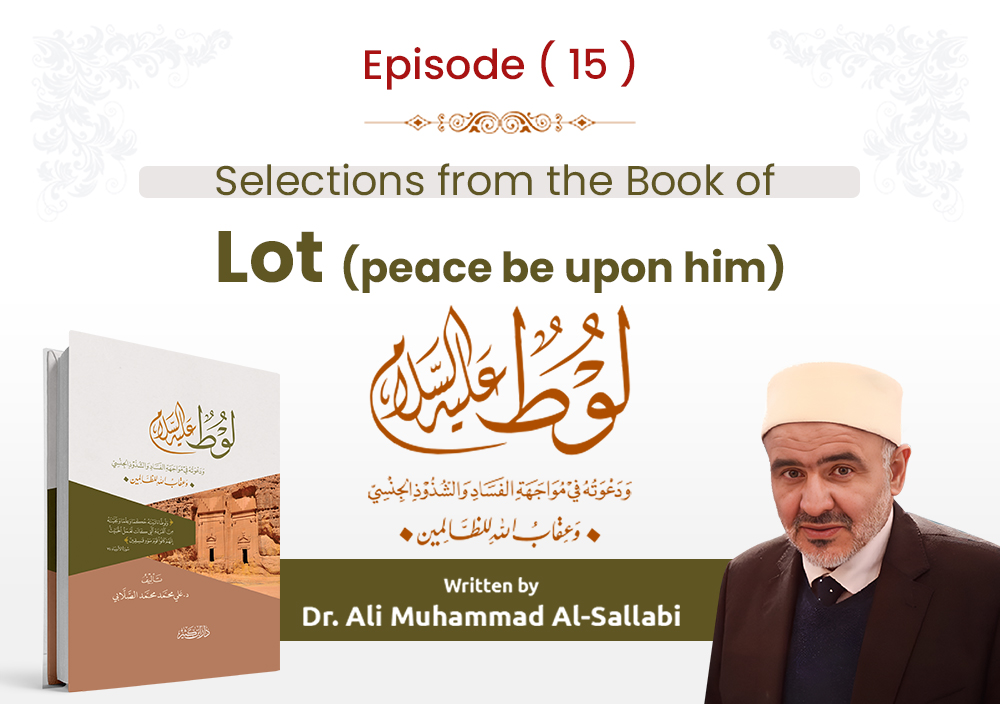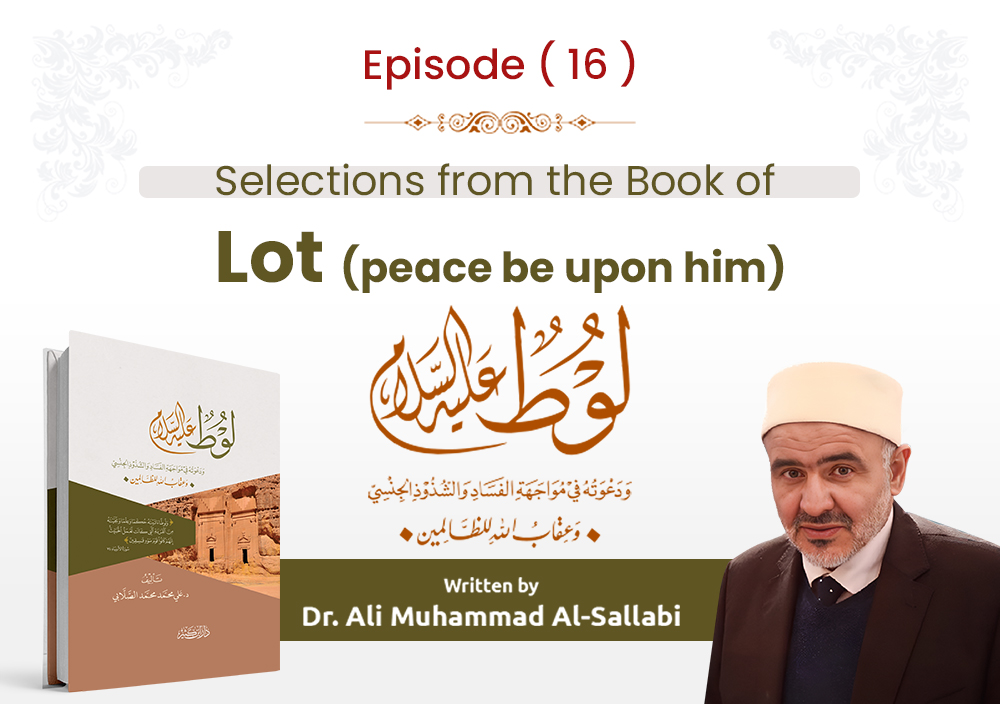Characteristics of Prophets and Messengers; P.2
Selections from the Book ‘’Lot (peace be upon him) and his Mission in Confronting Corruption and Sexual Deviance’’ …
Written by Dr. Ali Muhammad al-Sallabi...
Episode (14)
- Choosing them by revelation and message:
Allah Almighty says: {Allah chooses from the angels messengers and from the people. Indeed, Allah is Hearing and Seeing} [Al-Hajj: 75]. And He also says: {Say, "I am only a man like you, to whom has been revealed that your god is one God} [Al-Kahf: 110]. As a result of this revelation, there are matters by which they distinguish themselves from others, such as conversing directly with Allah, the descent of angels upon them, and Allah informing them of some past or future unseen matters, or granting them knowledge of some aspects of the unseen world, as happened to the Prophet (peace be upon him) during the Isra and Mi'raj. These are among the greatest and most distinguished qualities of the prophets, which Allah has bestowed upon them. This attribute necessitates that people obey their prophets, accept their commands and prohibitions, because the commands given by the prophets are revelations from Allah, commanding them to convey His message to people. This, in turn, requires people to honor their prophets, respect their words, and follow their guidance.
- The infallibility of the prophets:
This is another characteristic by which the prophets (peace be upon them) distinguished themselves from ordinary humans. It is among the necessities of revelation and prophethood, which Allah honoured His prophets with, making them infallible in conveying beliefs and rulings to people. Even if one of them were to make a verbal or practical mistake, it is among the necessities of infallibility that Allah would not let this mistake persist for long, correcting the prophet in the shortest possible time. After repentance, the state of the prophet would be even better than it was before committing the sin or mistake. Ibn Taymiyyah, may Allah have mercy on him, said: "Know that those who deviate regarding the issue of infallibility fall into two opposing extremes, both of which contradict the Book of Allah in some aspects. Some people exaggerate in claiming that the prophets are completely free from sin, to the extent that they distort the Quranic texts that mention the prophets repenting from sins, seeking forgiveness from Allah, and having their ranks elevated by doing so. Others exaggerate by attributing sins and flaws to the prophets that Allah has declared them innocent of. Both of these groups are in opposition to the Holy Quran. Those who adhere to the Holy Quran without distortion are the balanced nation, guided to the straight path, the path of those upon whom Allah has bestowed favor among the prophets, the truthful, the martyrs, and the righteous".
What concerns us here is the infallibility of their methodology and guidance because it is a revelation from Allah Almighty. This guarantees the safety of those who follow it from errors and deviations, ensuring their salvation, success, and empowerment. Their infallible methodology is not susceptible to the flaws, deficiencies, and deviations that may affect human methodologies. Before concluding the discussion on this issue, it is important to highlight two important points:
The first point is the obligation to show respect and reverence towards the prophets of Allah Almighty, and to recognize their rights, especially those who may have made some mistakes which Allah did not hold against them, but rather guided them to abandon them and repent. This does not negate their infallibility, nor does it diminish their status and perfection. Allah Almighty accepted their repentance, chose them, and guided them. This is evidenced by the statement of the Prophet Muhammad (peace be upon him) regarding the Prophet Jonah (peace be upon him): ''It is not fitting for a servant to say that I (The Prophet) is better than Jonah son of Matta''. Therefore, it is crucial to be extremely cautious about diminishing their status or harboring ill thoughts about them.
The second point is to be cautious of the Israelite narrations that many interpreters use in explaining the stories of the prophets in the Holy Quran. Some of these narrations involve casting doubt and showing disrespect towards the prophets and messengers of Allah, which contradicts their infallibility, even though these narrations have no basis and are rejected both in their chain of transmission and content. Therefore, we do not accept any past accounts for interpreting the Quran except what is found in the Holy Quran itself or in authentic Hadiths. Anything else is rejected and dismissed because it involves speaking about the unseen without certainty. As Sheikh Al-Saadi (may Allah have mercy on him) said: "It is not permissible to interpret the Book of Allah with Israelite narrations, even if these narrations are considered permissible regarding matters where their falsehood cannot be confirmed. The meanings of the Book of Allah are definitive, while those narrations cannot be believed or disbelieved, so they cannot be reconciled''.
- Ali Muhammad al-Sallabi, Lot (peace be upon him) and his Mission in Confronting Corruption and Sexual Deviance, pp. 69-72.
- Educational Pauses in the Light of the Holy Qur’an, Abdul Aziz Nasser Al-Jalil, 3/30-32.
- The Collection of Fatwas, Ibn Taymiyyah, 15/150.
- Tafsir al-Saadi, “Taysir al-Karim al-Rahman fi Tafsir Kalam al-Mannan,” 2/130.
For further information and review of the sources for the article, see:
The Book of ‘’Lot (peace be upon him) and his Mission in Confronting Corruption and Sexual Deviance’’ on the official website of Sheikh Dr. Ali Muhammad al-Sallabi:


